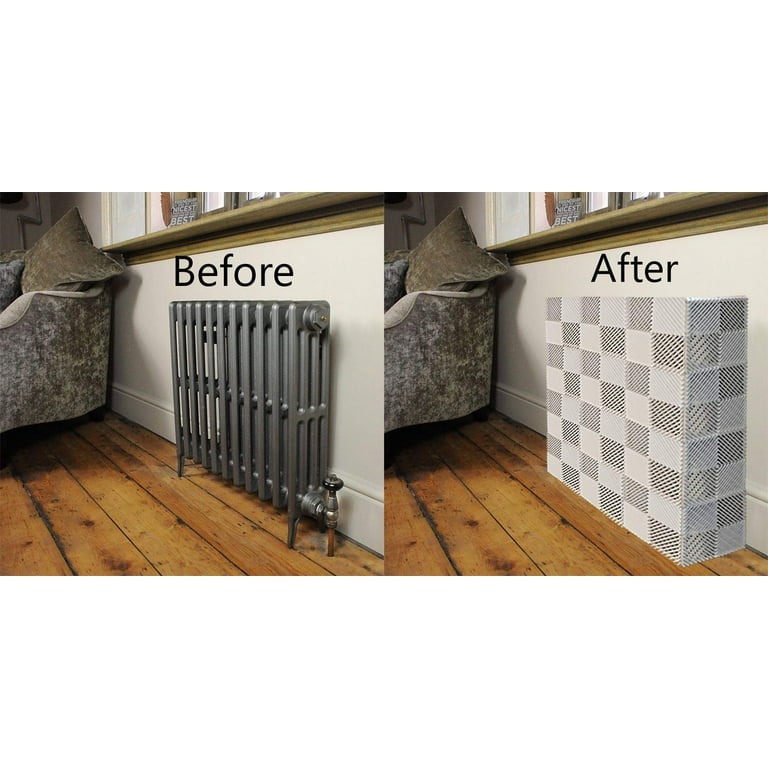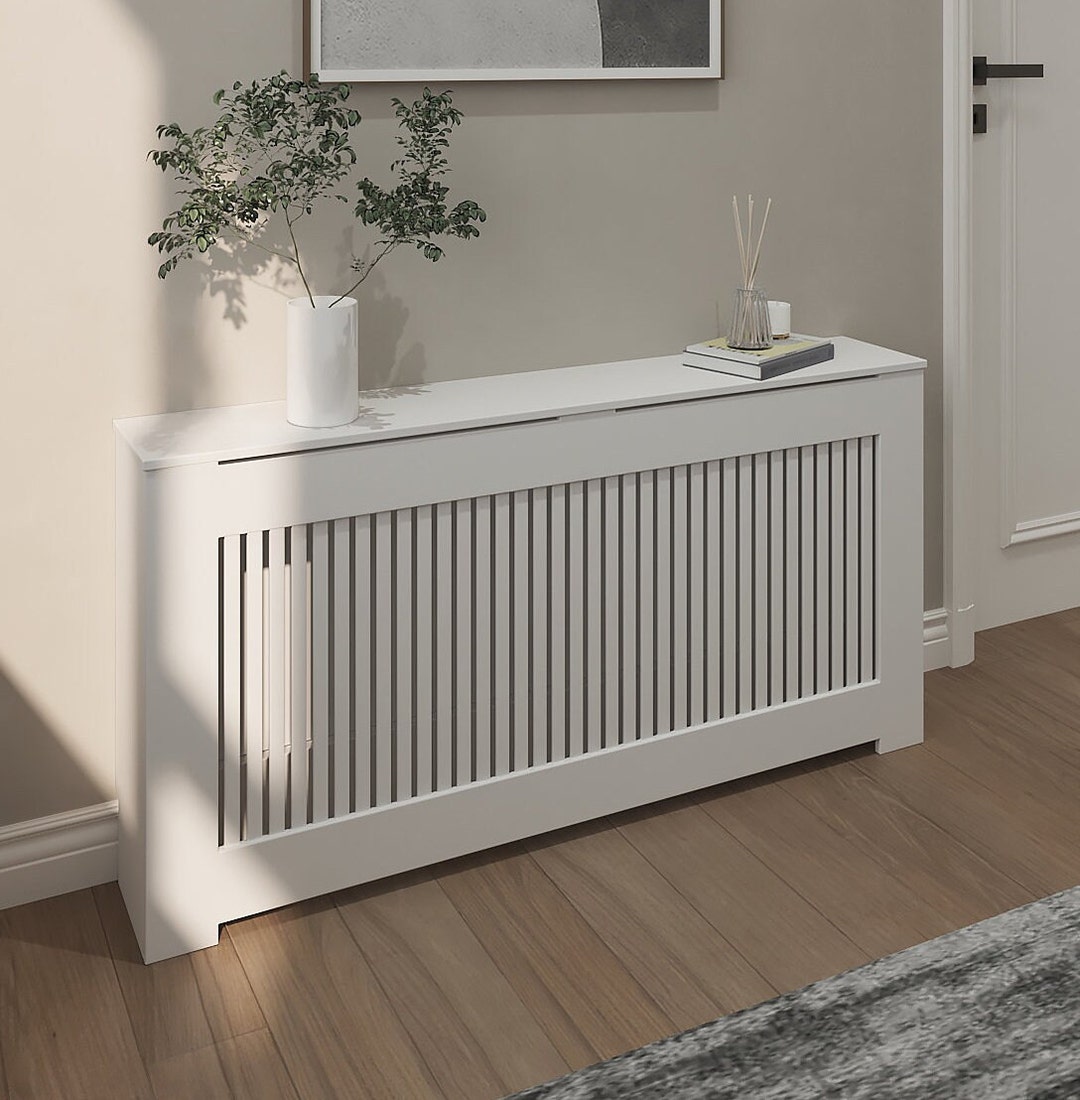The 45-Second Trick For Modern Radiator Covers
The 45-Second Trick For Modern Radiator Covers
Blog Article
More About Modern Radiator Covers
Table of ContentsModern Radiator Covers - TruthsSome Known Factual Statements About Modern Radiator Covers 10 Simple Techniques For Modern Radiator CoversThe Best Strategy To Use For Modern Radiator Covers3 Simple Techniques For Modern Radiator Covers
For the entire radiator to warm up effectively, it needs to be devoid of obstructions. It's feasible to tell if there's a blockage as the radiator will only partly warm up. These clogs can be available in the form of air or build-up of particles and are taken care of in different means.Cleaning the air can be done by bleeding the radiators and is perfectly safe to do without the aid of a home heating engineer must you not feel comfortable do not hesitate to speak to an engineer. modern radiator covers. When it comes to a physical obstruction, this can be made from of rust, dirt and various other particles that slowly develops with time and ends up being a mud-like material which avoids the warm water from flowing correctly
NO INSULATION! --------------------------------------------------------- One of the University of Illinois studies found agreement with other studies that the ONLY enclosure that can actually increase output was not really an enclosure. It was a screen put 2" from the front of the radiator with NO TOP and an open slot at the bottom.
By the way, the ideal placement for sides and ends of enclosures was discovered to be EXACTLY 2" away from the radiator. The "regular" produced covers that I have seen will typically decrease the result by 15-20% for high radiators and 25-45% for reduced radiators!
The Definitive Guide for Modern Radiator Covers
The temperature level at the "breathing level" was essentially unmodified. That "appropriate" unit was VERY details. It surrounded ALL FOUR SIDES of the radiator (consisting of the back). The top was strong, the front evaluated and there was an air slot at the base. DO NOT FORGET THAT THIS IS FOR A VAPOR RADIATOR IN THE CONSTRUCTION/CONDITIONS PROVIDED OVER!!! ---------------------------------------------------------- With warm water radiators at 158F standard temperature level, the outcome adjustment triggered by enclosures was basically the very same as steam.
As you point out, you immediately transform them right into a convector and much of the glowing output is lost. If you occur to be bewildered by the radiant result of some radiator (huge heavy steam rad by a door as an example), make use of the old-timer's method of painting it with aluminum-based paint. This will minimize the emissivity substantially and there will certainly be less radiation.

Some Known Facts About Modern Radiator Covers.
are most frequently made from timber, steel, or plastic. Wood covers are one of the most popular, as they are very easy to customize and can be found in a variety of shades and surfaces. Steel covers are likewise preferred, as they are resilient and very easy to clean. Plastic covers are an even more cost effective option, company website yet may not be as long lasting or stylish as the other 2 materials.
Not only do they maintain your heat in, however they additionally offer an additional layer of insulation, which aids to keep your home even warmer - wood radiator covers. They likewise lower sound and can aid to protect your walls and furnishings from warmth damages. Additionally, they can add a trendy touch to your home, as they come in a selection of shades, products, and styles
This can save you time and effort when it pertains to cleansing and keeping your radiators. Additionally, can help to make your home much more energy effective, as they assist to maintain the warmth in, reducing the need for additional heating. Image: my furniture When it concerns selecting the right for your home, there are a number of different types to select from.
Our Modern Radiator Covers PDFs
(https://www.openstreetmap.org/user/mradiatorc01)Wood covers are the most prominent, as they are simple to personalize and be available in a range of colors and finishes. Metal covers are also popular, as they are durable and easy to tidy. Plastic covers are an even more cost effective alternative, however may not be as resilient or stylish as the various other 2 materials.

Typical radiator covers are a fantastic option for homes with older radiators, as they supply an even more timeless look. Furthermore, there are radiator tops that fit over the top of radiators, giving added insulation and aiding to keep the heat in. For those that are seeking something a little more one-of-a-kind, custom-made radiator covers are additionally readily available.
Modern Radiator Covers Can Be Fun For Anyone
This enables you to produce an one-of-a-kind search for your home. Photo: BOLIG Picking the ideal radiator cover for your home can be a challenging job. The initial point to think about is the shapes and size of your radiator. They are available in a variety of sizes, so it's essential to measure your radiator prior to you go shopping.
Heavy steam radiator covers fit over vapor radiators, while contemporary radiator covers boost the look of your home. In addition, there are radiator tops that fit over the top of radiators, offering additional insulation and helping to keep the warmth in.
Report this page